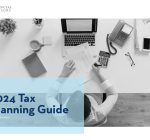How difficult it is to sleep during the day!
Do you become tired at odd hours? As excessive daytime drowsiness is a symptom of all three, this could be a sign of hypersomnia, narcolepsy, or sleep apnea.
It is normal to feel sleepy and sluggish from time to time. You may be experiencing excessive daytime drowsiness if these symptoms come and go and make it difficult to maintain your social life, work, or school.
Around 20% of study participants reported feeling drowsy at least once each day. As a result, insomnia therapy is the most commonly provided service by sleep clinics. The inability to stay awake throughout the day is not a medical condition in and of itself, but rather a symptom of more serious diseases such as narcolepsy or obstructive sleep apnea, or a side effect of some medications.
Everyone is affected differently by fatigue. It may not appear to be much, but it could be an indication of a major problem that need attention. Consider the following information regarding daytime sleepiness and the need for medical attention.
Excessive drowsiness symptoms
Hypersomnia, often known as excessive daytime sleepiness, is the inability to sleep regardless of the conditions. The affected person frequently experiences sleeplessness or sleepiness during the day. You may be sleeping too much if you find yourself falling asleep at inconvenient moments. For at least three months, I slept almost every day, either on purpose or by accident.
Those that have difficulty staying awake during the day:
Do you struggle to keep focused and motivated during the day?
Nothing gets done because they are unorganized and inefficient.
Can’t concentrate, make decisions, participate completely in life, or appreciate it?
Other than weariness, a variety of factors might lead to excessive afternoon sleepiness. It’s bothersome that, despite its power to muddle judgment, impede reflexes, and activate memory, it often passes unnoticed.
Workplace accidents and drowsy driving have been connected to the syndrome. Excessive daytime sleepiness can be caused by a variety of factors.
Sleep disorders include a variety of difficulties, including narcolepsy, sleep apnea, and hypersomnia.
If your airway repeatedly closes while sleeping, you may have obstructive sleep apnea. In North America, 10% to 40% of adults suffer from chronic sleep breathing problems. Because they do not get enough restorative sleep at night, people with this condition are drowsy during the day.
Obstructive sleep apnea has been linked to a variety of cardiovascular problems, such as hypertension, atrial fibrillation, heart attack, and stroke. Older people, particularly men, bear a disproportionate share of the burden.
Narcolepsy affects fewer than 1% of the population in comparison to other sleep disorders. The most visible indication of this dangerous sickness, however, is excessive daytime sleepiness. The most effective strategy to increase your level of wakefulness is to take a stimulant such as Modalert 100 or Artvigil 150.
Stress
Your personal and professional obligations may be weighing on you. If you need help managing your stress, talk to your doctor about your choices. If your thoughts keep you awake at night, consider writing down everything that happened during the day.
That must change!
Work responsibilities may also prevent you from getting enough rest. Those who work the night shift may have problems sleeping since they must nap during the day, when the light is brighter and the environment is busier. One of the most noticeable signs of shift work disorder is fatigue. One of the most effective therapies for afternoon fatigue is Waklert 150.
Substance misuse, which includes both prescription and illicit drugs
Sleep deprivation has been linked to substance misuse. Alcohol may make it harder to sleep. Alcohol is a sedative, so it may help you fall asleep at first but may keep you awake as the effects wear off.
Furthermore, many illegal drugs contain stimulants that make falling and staying asleep difficult.
If you are having difficulty sleeping while taking any of these medications, consult your doctor about other options.
Excessive Sound
Many people are awakened by noise, and it is unlikely that you will be able to eliminate the source(s). If you choose to live in a city or near a major thoroughfare, you may be subjected to constant sirens, automobile horns, and other transportation-related noises. There could be a newborn at home who requires your assistance.
Talk to your doctor about soundproofing your home or utilizing a natural sleep aid if noise is keeping you awake.
To summarize
Excessive daytime drowsiness can be treated by seeing your doctor and then implementing the proper treatment plan.





